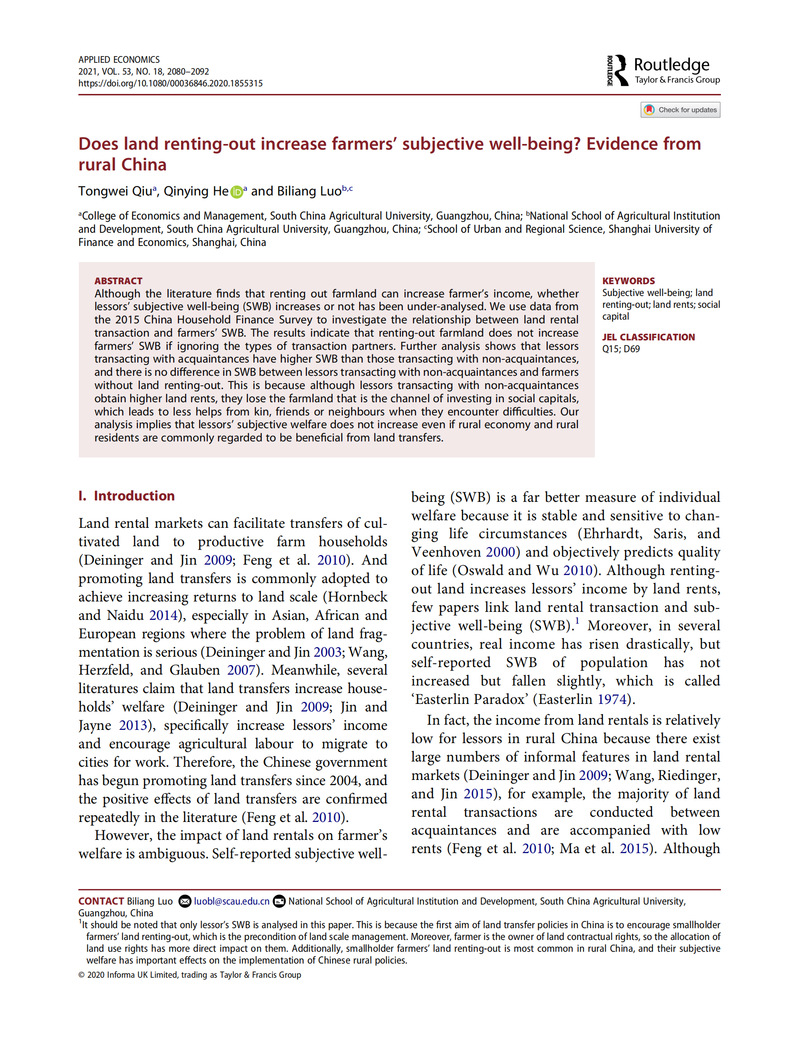出版时间: APR 15 2021 卷: 53 期: 18
DOI: 10.1080/00036846.2020.1855315
论文地址: https://www.webofscience.com/wos/alldb/full-record/WOS:000598096900001
摘 要
Although the literature finds that renting out farmland can increase farmer’s income, whether lessors’ subjective well-being (SWB) increases or not has been under-analysed. We use data from the 2015 China Household Finance Survey to investigate the relationship between land rental transaction and farmers’ SWB. The results indicate that renting-out farmland does not increase farmers’ SWB if ignoring the types of transaction partners. Further analysis shows that lessors transacting with acquaintances have higher SWB than those transacting with non-acquaintances, and there is no difference in SWB between lessors transacting with non-acquaintances and farmers without land renting-out. This is because although lessors transacting with non-acquaintances obtain higher land rents, they lose the farmland that is the channel of investing in social capitals, which leads to less helps from kin, friends or neighbours when they encounter difficulties. Our analysis implies that lessors’ subjective welfare does not increase even if rural economy and rural residents are commonly regarded to be beneficial from land transfers.
关键词
Subjective well-being; Land renting-out; Land rents; Social capital

基金资助:
the National Social Sicience Foundation of China [20FGLA004] and the National Natural Science Foundation of China [71742003].
责任编辑:董晓玲
审 定:黄 松